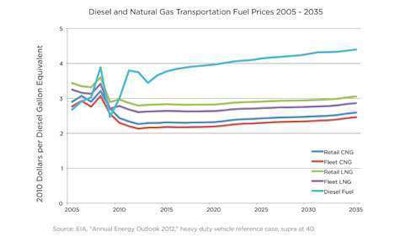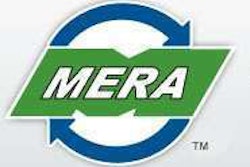
A report from a Washington, D.C. energy policy group urges the federal government to begin allocating its $150 billion budget for transport services to carriers that fuel their fleets on domestically produced natural gas, electricity, biofuels and other alternatives to diesel and gasoline.
The report, by the nonprofit American Clean Skies Foundation, says a switch of just 20 percent of the U.S. government’s business to freight and package carriers using alternative fuels would lead to taxpayer savings of up to $7 billion annually and about $25 billion by 2025 – assuming a gradual fuel shift, beginning in 2015.
The 55-page ACSF report – “Oil Shift: The Case for Switching Federal Transportation Spending to Alternative Fuel Vehicles” – finds that shifting federal transportation contracts to vans and trucks running on alternative fuels could reduce oil imports by billions of gallons annually, cut greenhouse gas pollution by more than 20 million metric tons a year and stimulate the nationwide introduction of tens of thousands of new alternative fuel vehicles.
“When it comes to shipping goods to the government, we think it’s high time for Washington to start ‘buying American’ and using more carriers that rely upon cleaner domestic fuels,” said Gregory Staple, chief executive officer of ACSF and co-author of the report. “That will not only save billions of taxpayer dollars but also lead to cheaper and less polluting freight transportation options for everyone else.”
The report recommends that Washington apply the same measurement and reporting tools developed by federal agencies over the last two decades to ratchet down petroleum use and harmful emissions associated with the government’s own transportation fleet.
“Most people are probably unaware that the freight services which are used by the government and major product suppliers provide a 30 times larger opportunity for oil savings and emissions reductions than the cars and trucks that the government owns itself,” said Warren Lavey, ACSF’s senior regulatory counsel and co-author of the report. “Our proposal does not require any new legislation or spending – federal agencies already have the legal authority required to track the oil used and pollution associated with third-party shipping services. And agencies also have the authority to begin buying those services from freight carriers that increasingly rely on cleaner, domestically sourced alternative fuels.”










